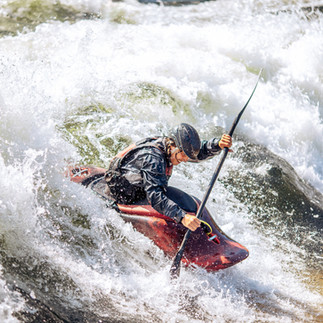Preventing Water Sports Pain: Let’s talk kayaking, surf skiing and rowing
- Aeon Health
- Jul 21, 2023
- 2 min read
Engaging in water sports like kayaking, surf skiing, and rowing offers incredible physical benefits, but it's not without its challenges. Athletes involved in these activities often experience specific types of pain due to the repetitive nature of the movements and the demands placed on their bodies. As a physiotherapist, it's crucial to understand the unique stressors these sports impose and provide effective strategies to prevent and manage pain.
Common Pain Areas
Now, let's explore some of the common pain areas experienced by kayakers, surf ski enthusiasts, and rowers.
Shoulders and Upper Back
The repetitive motion of paddling and rowing can lead to shoulder impingement, rotator cuff strains, and upper back muscle imbalances. It's crucial to focus on maintaining proper paddling technique, shoulder mobility exercises, and strengthening the rotator cuff muscles.
Lower Back
Lower back pain is common among all three sports due to the sustained sitting position and repetitive spinal flexion and extension. Strengthening the core muscles, maintaining good posture, and incorporating regular back stretches can help prevent and manage lower back pain.
Wrists and Forearms
Kayakers and rowers are particularly prone to wrist and forearm pain due to the constant gripping and repetitive motion involved. Wrist and forearm strengthening exercises, proper paddle grip techniques, and ergonomic adjustments to equipment can mitigate these issues.
The Role of Physiotherapy
To prevent injuries and manage pain caused by kayaking, surf skiing, and rowing, plays an important role. A qualified physiotherapist will conduct a thorough assessment to identify the root cause of the pain and determine any underlying muscular imbalances or biomechanical issues. We employ various techniques to reduce pain and inflammation including:
Manual therapy
Soft tissue mobilisation
Dry needling
Injury prevention may also involve personalised exercises for warming-up and stretching. Other exercises may be focussed on strengthening and conditioning by targeting the core, back, shoulder and arm muscles. Our physiotherapists will provide guidance on correct postural and paddling/rowing techniques to minimise the likelihood of pain and injury.







Comentários